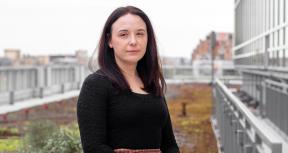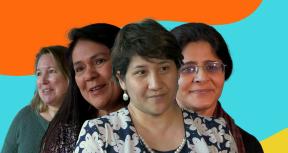“The investor of today does not profit from yesterday’s growth.
If history was all there was to the investing game, the richest people would be librarians.” -Warren Buffett, 1998
The 2030 Sustainable Development Goals cannot be achieved without the substantial involvement of the private sector and the attraction of commercial capital[i] to emerging markets and developing economies (EMDEs). Such realization is at the heart of the Maximize Finance for Development (MFD) agenda. Yet our understanding of the scope, mandate, objectives, and behaviors (returns seeking, market seeking, efficiency seeking or impact seeking) of investors concerning EMDEs continues to be somewhat elusive.
To explore investors’ current interests and concerns about EMDEs and their implications for the World Bank Group, the Independent Evaluation Group (IEG) conducted a Global Institutional Investor Survey reaching 3,000 institutional investors[ii], both public and private, and who collectively hold close to US$2 trillion of Assets Under Management. The analysis of survey responses is useful to understand the potential additionality that World Bank Group institutions can provide through their platforms, programs and approaches.
Based on IEG’s survey, the current views of investors on the opportunities, challenges, and risks in allocating their capital for EMDEs can be summarized as follows:
1. .While private investors[iii] have a strong preference for emerging markets, public investors considered expansion or new investments in both emerging and frontier markets. This preference suggests that attracting larger sum of private capital into developing and especially frontier economies remains a challenge.
2. Ranked by order of preference, private investors are targeting industrial, financial, healthcare and consumer good and retail. On the other hand, public investors prefer infrastructure, consumer goods and retail, technology and financial sector. Overall, financial sector, consumer goods and retails are top on the agenda for all category of investors. While all the sectors related to the SDGs, the different preferences of the private institutional investors suggest a challenge, but also an opportunity to attract more private institutional investors into sectors that are more SDG intense such as infrastructure.
3. The top five macro constraints include: political risk, credit and forex risk, liquidity and exit, macroeconomic environment (currency volatility, inflation, public debt, trade barriers), rule of law and contract enforcement as well as deal quality.
4. These include investments with expected returns above developed markets (commensurate with risk), availability of liquidity, presence of fund manager in the new market and availability of risk/credit guarantee solutions. All three Bank Group institutions offer guarantees to support investor participation, in the form of partial risk, partial credit, political risk etc. for credit enhancement and de-risking.
5. Investors indicate that they are more likely to increase alternative investments in EM/FM if IFC or World Bank Group(WBG) engage in the following activities: improving legal or regulatory environment, providing research and information on (country, sector, market), supporting or sponsoring local investment opportunities, offer first-loss facilities, improve macro-environment and offer full or partial guarantee products. Investors are also more likely to invest in EM/FM sponsored by multilateral development banks and international financial institutions if the activities listed above are provided. The World Bank Group has been scaling up first-loss facilities, project development fund, and introduced capital market solutions that can address, in part, institutional investor expectations.
The above IEG survey findings suggest there remain many challenges and but also enhanced opportunities and hope for attracting investors to EMDEs. The Bank Group can contribute to lead the global agenda on the Sustainable Development Goals with its knowledge base, menu of financing instruments, and convening power.
[i] Including capital commitments from institutional investors and public-sector agencies where the investors are exposed to commercial risks
[ii] Investor Typology: 56% of respondents were private investors (asset management companies, fund of funds, corporate pension funds, insurance companies, commercial banks and corporations), 22.45% were public investors (public pension fund, DFIs, MDBs, Government owned agencies, sovereign wealth funds), and 21.43% of investors were comprised of foundations and family offices.
“The investor of today does not profit from yesterday’s growth.
If history was all there was to the investing game, the richest people would be librarians.” -Warren Buffett, 1998
To explore investors’ current interests and concerns about EMDEs and their implications for the World Bank Group, the Independent Evaluation Group (IEG) conducted a Global Institutional Investor Survey reaching 3,000 institutional investors[ii], both public and who collectively hold close to US$2 trillion of Assets Under Management. The analysis of survey responses is useful to understand the potential additionality that World Bank Group institutions can provide through their platforms, programs and approaches.
The 2030 Sustainable Development Goals cannot be achieved without the substantial involvement of the private sector and the attraction of commercial capital[i] to emerging markets and developing economies (EMDEs). Such realization is at the heart of the Maximize Finance for Development (MFD) agenda. Yet our understanding of the scope, mandate, objectives, and behaviors (returns seeking, market seeking, efficiency seeking or impact seeking) of investors concerning EMDEs continues to be somewhat elusive.
To explore investors’ current interests and concerns about EMDEs and their implications for the World Bank Group, the Independent Evaluation Group (IEG) conducted a Global Institutional Investor Survey reaching 3,000 institutional investors[ii], both public and who collectively hold close to US$2 trillion of Assets Under Management. The analysis of survey responses is useful to understand the potential additionality that World Bank Group institutions can provide through their platforms, programs and approaches.
Based on IEG’s survey, the current views of investors on the opportunities, challenges, and risks in allocating their capital for EMDEs can be summarized as follows:
1. .While private investors[iii] have a strong preference for emerging markets, public investors considered expansion or new investments in both emerging and frontier markets. This preference suggests that attracting larger sum of private capital into developing and especially frontier economies remains a challenge.
2. Ranked by order of preference, private investors are targeting industrial, financial, healthcare and consumer good and retail. On the other hand, public investors prefer infrastructure, consumer goods and retail, technology and financial sector. Overall, financial sector, consumer goods and retails are top on the agenda for all category of investors. While all the sectors related to the SGDs, the different preferences of the private institutional investors suggest a challenge, but also an opportunity to attract more private institutional investors into sectors that are more SDG intense such as infrastructure.
3. The top five macro constraints include: political risk, credit and forex risk, liquidity and exit, macroeconomic environment (currency volatility, inflation, public debt, trade barriers), rule of law and contract enforcement as well as deal quality.
4. These include investments with expected returns above developed markets (commensurate with risk), availability of liquidity, presence of fund manager in the new market and availability of risk/credit guarantee solutions. All three Bank Group institutions offer guarantees to support investor participation, in the form of partial risk, partial credit, political risk etc. for credit enhancement and de-risking.
5. Investors indicate that they are more likely to increase alternative investments in EM/FM if IFC or World Bank Group(WBG) engage in the following activities: improving legal or regulatory environment, providing research and information on (country, sector, market), supporting or sponsoring local investment opportunities, offer first-loss facilities, improve macro-environment and offer full or partial guarantee products. Investors are also more likely to invest in EM/FM sponsored by multilateral development banks and international financial institutions if the activities listed above are provided. The World Bank Group has been scaling up first-loss facilities, project development fund, and introduced capital market solutions that can address, in part, institutional investor expectations.
The above IEG survey findings suggest there remain many challenges and but also enhanced opportunities and hope for attracting investors to EMDEs. The Bank Group can contribute to lead the global agenda on the Sustainable Development Goals with its knowledge base, menu of financing instruments, and convening power.
[i] Including capital commitments from institutional investors and public-sector agencies where the investors are exposed to commercial risks
[ii] Investor Typology: 56% of respondents were private investors (asset management companies, fund of funds, corporate pension funds, insurance companies, commercial banks and corporations), 22.45% were public investors (public pension fund, DFIs, MDBs, Government owned agencies, sovereign wealth funds), and 21.43% of investors were comprised of foundations and family offices.








Comments
Excellent
Excellent
Interesting answers to guide…
Interesting answers to guide the design of Investment instruments in Frontier markets
Lots of opportunities exist…
Lots of opportunities exist in EMDEs, ranging from untapped sectors of their economy to lack of technological know how and innovations. Most of them depends largely on importation of basic products that should be produced locally. The educational system as well as health system is a disaster, while investors can benefit from these EMDEs, attractive government policies and effective implementation of same will pave way for investors to come.
While we appraise the…
While we appraise the opportunities for increasing funding to EMDEs, it will be useful to see how IEG can assist in analysing the effects of the recurrent costs of long-term private sector investment in selected services, for example municipal solid waste management services, inhibit the ability of national and sub-national entities to mobilize domestic resources.
I see a lot of opportunities…
I see a lot of opportunities for local public and private sector participants to attract and partner with the international counterparts to deliver on the stakeholders expectations.
There are opportunities for…
There are opportunities for low-income countries, but this raises some concern in fragile states. Also, while finding out how to increase capital flows to EMDES, it would better to address at the same time matters of state building.
Quite Expository and it…
Quite Expository and it opens a lot of opportunities for both academics and research purposes which can further improve on the present state of the EMDEs portfolios
Investors are becoming more…
Investors are becoming more prompt and alerted. What to indicate is that, they the investors are more likely to increase alternative investments in EM/FM if IFC at the same time the World Bank Group engages in the following activities: improving legal or regulatory environment, also to provide research and information on country's data bases, sector roles and policies, market trends and scaling out market associated risks, supporting and sponsoring local investment opportunities, offer first-loss facilities at the same time improving on macro-environments and also offer full and partial guarantee products. Investors are likely to invest in EM/FM sponsored by multilateral development banks and international financial institutions if the activities listed above are provided. The World Bank Group has been scaling up first-loss facilities, support in giving development funds, and introducing capital market solutions that can address, in part, institutional investor expectations.
The rest are within what the near future must have! Challenges are always there but when we come together, those risks and challenges become lighter or even no more. What can you in particular say in this regards?
Excellent report. Macro…
Excellent report.
Macro economic environment of emerging and developing markets is one crucial factor out of many others deciding investment by both private and public investors. Most of these environmental factors in EMDEs are not favorable thereby constricting investment inflow.
Add new comment